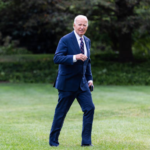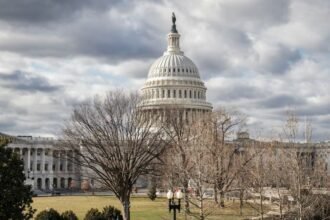Campaign Documents Leaked Amid Concerns of Foreign Election Interference
Trump Campaign Alleges Foreign Hack
Allegations of stolen internal conversations from Donald Trump’s 2024 presidential campaign indicate fingers directed toward Iranian agents. The campaign claims that “foreign sources hostile to the United States” acquired vital papers, including internal research on Trump’s running mate, Ohio Senator JD Vance. The campaign omitted specifics or proof specifically tying the document leak to the Iranian government or hackers.
Documents Confirmed as Authentic
On Saturday, it was said that the campaign records contained a thorough investigation of Senator Vance. Based on publicly accessible records of Vance’s prior record and comments, the study dossier on him supposedly runs 271 pages.
Apart from the Vance file, the source—who only identifies as “Robert”—using an AOL email account—sent part of a study paper about Florida Senator Marco Rubio, another vice-presidential hopeful. The papers emphasized some of Vance’s remarks, labeling her past and well-known objections to Trump as “potential vulnerabilities.”
Iran Denies Involvement
Iranian officials have responded to these accusations by disputing any link to the breach. “We do not accord any credence to such reports,” a spokesperson for Iran’s permanent mission to the United Nations said. The Iranian government neither intends nor motivates itself to meddle in the United States presidential election.”
Microsoft Report Links Iran to Campaign Targeting
The Trump campaign’s assertions follow a study published by Microsoft’s Threat Analysis Center (MTAC), which revealed that in June, Iranian hackers had targeted the campaign of an unidentified US presidential contender. The MTAC report claims that the campaign received a spear-phishing email, a communication meant to seem reliable and get the receiver to click on a dangerous link
“We have seen the emergence of notable influence activity by Iranian actors over the past several months,” the MTAC report said.
Trump Campaign Responds to Hacking Attempt
Trump campaign spokesman Steven Cheung linked the timing of President Trump’s choosing a vice-presidential contender with the June hacking effort highlighted in the MTAC report. Emphasizing that the hack was “intended to interfere with the 2024 election,” Cheung stated, “The Iranians know that President Trump will stop their reign of terror just like he did in his first four years in the White House.”
Cheung’s comment emphasizes the campaign’s conviction that the hacking attempt was not only a random cyberattack but a calculated attempt to affect the result of the next election
Iranian Cyber Influence in US Elections
Iranian hackers have been accused of trying to influence US elections before. Microsoft’s research said, “Iranian cyber-enabled influence operations have been a consistent feature of at least the last three US election cycles.” Another similar analysis published during the 2020 election indicated that Iranian hackers had targeted presidential campaigns, therefore highlighting the continuous threat of foreign intervention in US political processes.
Additional Security Concerns
Apart from the claims of hacking, US security authorities have also spoken of an Iranian conspiracy to kill Donald Trump; however, this is unrelated to the attempted shooting in Pennsylvania last month. Tuesday saw the US Justice Department charging a Pakistani man reportedly connected to Iran with plans to kill US leaders, maybe including the former president.
These events complicate the already tense political atmosphere around the 2024 election. Cybersecurity and foreign influence remain significant issues as the Trump campaign negotiates these obstacles.
Ongoing Investigations and Unanswered Questions
Although the Trump campaign has generated concerns about what it claims to be an Iranian-backed hacking effort, many questions remain unresolved. The absence of proof connecting the document breach to Iranian hackers opens avenues for conjecture and more inquiry. The possibility for foreign intervention and the security of campaign communications will remain major national concerns as the 2024 election gets ready.
Unregistered Children’s Homes Charge £20,000 a Week, Endangering Vulnerable Youth, Court Hears








